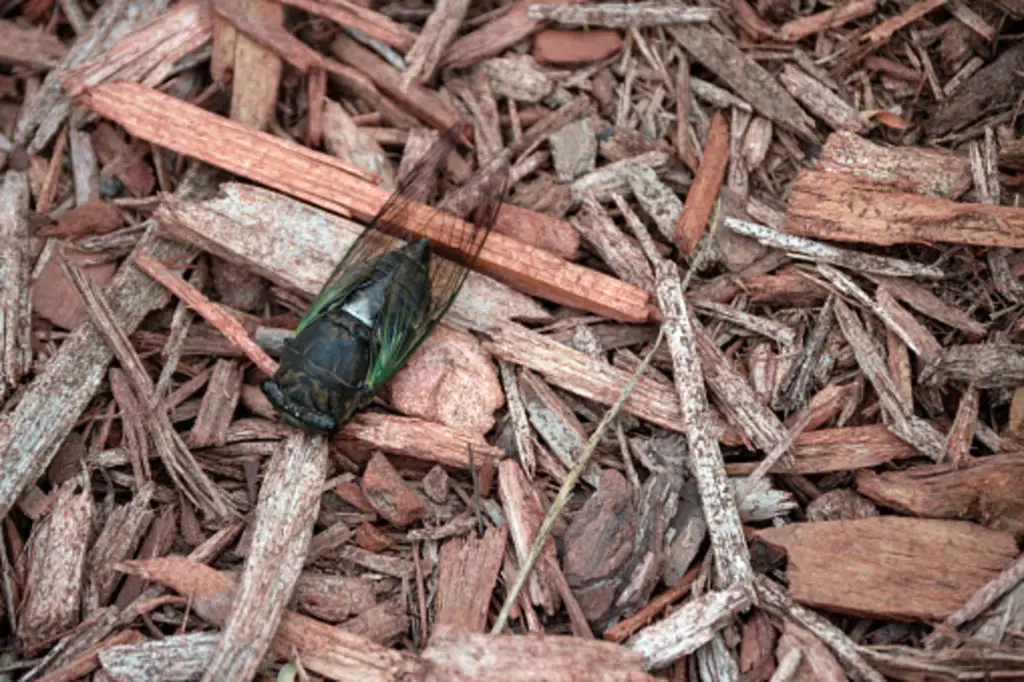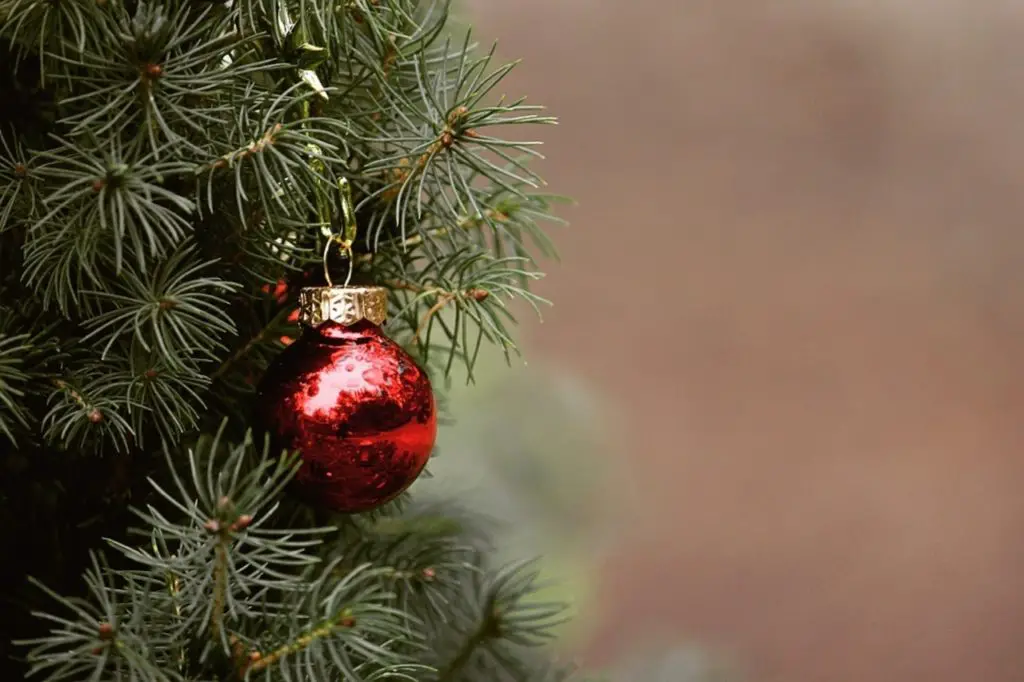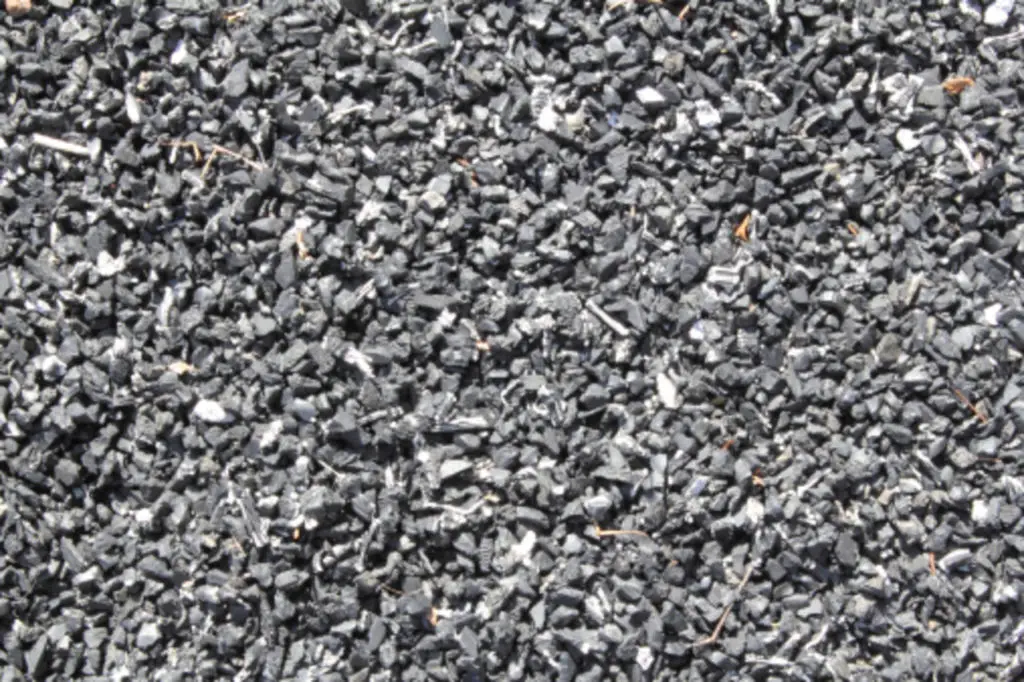Although organic mulch offers numerous benefits to your plants and soil, these are the same benefits that attract flies to your mulch. However, it can attract undesirable visitors, such as flies, during decomposition. Knowing how to get rid of flies in mulch is critical to keep your landscape ravishing for your garden picnics and barbecues.
Mulch provides food, shelter, and safe breeding space for flies, making it one of their favorite habitats. Removing compost, regular cleaning, and replenishing the mulch helps you get rid of flies. Flies can be a nuisance and spread disease-causing organisms.
Discover some excellent anti-fly tips to keep your mulch free of these buzzing bugs. Also, discussed below are several mulches known for their flies-repellent abilities.
Also Check: Does Rubber Mulch Attract Mice?
How To Get Rid Of Flies In Mulch
Discussed below are several ways on how to get rid of flies in mulch, such as:
- Drying Out Mulch
As long as flies can find breeding and feeding ground in your garden, they’ll stick around. Wet mulch encourages rotting making it a thriving home for larvae and maggots.
Therefore, allowing the top of your mulch to dry out discourages the flies. Occasionally turn or rake your mulch to allow moldy, wet layers to dry.
- Use Of A Repellent
You can use a repellent to provide short-term protection from an infestation while waiting for the mulch to dry. Repellants have varying success rates, depending on the strength of the ingredients.
Exercise caution when using repellents as the toxins can seep into your crop plants. They can also be hazardous to your kids and pets if they accidentally ingest them. Always wash your hands and after using repellant on your mulch. You may consider safer ingredients such as vinegar, citrus oils, essential oils, garlic infusions, and others for edible crop plants.
- Remove The Compost
When you remove their food source, which is the compost, the flies go away. You can place mulch attracting flies in a compost bin and add other ingredients to break down completely.
Once the mulch decomposes fully, it stops drawing flies. Cover your compost bin with a lid to prevent the flies from swarming the area while the mulch is decaying.
Remove stinkhorn fungi to get rid of a fly population in your mulch pile because of the foul odor produced by the fungus.
- Cleaning The Mulch
Ensure that you don’t dispose of foods or liquids in your mulch. Regular cleaning of the mulch removes any rotting foods or decaying plants that can attract flies.
Cleaning the mulch helps eliminate your pet’s urine and poop which usually draws the flies.
Moreover, you can cover your mulch with a fresh layer of straws or leaves to deter flies.
- Changing The Mulch
It’s advisable to change your mulch after about 6 months to a year. Use a different kind of mulch; for example, if you had pine bark mulch, apply cedar this time. Changing the existing mulch with a different one helps disrupt the typical environment, and flies usually need time to adapt.
Additionally, changing your mulch after some time helps you destroy all the flies’ hideouts and habitats.
- Avoid Mixing Mulch With Fresh Manure
To mulch your garden without luring flies is to apply natural mulch without adding fresh manure. A layer of fresh sugar cane, straw, or fresh bark mulch installed on your garden doesn’t attract flies since animal manure usually lures them.
Before using hay or straw from chicken yards, rabbit, or hamsters’ cages, add it to your compost pile to break down the urine and manure.
Why Are Flies Attracted To Mulch
Mulch is composed of organic matter, which attracts microorganisms such as fungi and bacteria. The organisms feed on decomposing organic matter, helping break down the mulch. The decomposition of the organic matter draws flies.
Fungi which usually produce fruiting bodies called stinkhorns are primarily attracted to mulch piles. The stinkhorns release a foul smell like rotting meat that draws flies.
Also, if you usually use kitchen leftovers in your compost, flies are bound to stay in the mulch. They are attracted to foul smells and rotting and fermenting food materials. Dumping garbage or leftovers on your mulch can quickly become a fly’s paradise.
Decomposing mulch is conducive for a swarm of flies since they’ll get sufficient food and humidity.
Moreover, mulch attracts black flies, tiny vinegar flies, or march flies if mixed with fresh manure. Flies can also sit on mulch that has been peed or pooped on by dogs and cats.
Why Should You Get Rid Of Flies In Mulch
Below are some of the reasons why you should get rid of flies in your mulch:
- They Breed Very Quickly
Flies have a short lifespan of approximately three weeks. However, females can lay up to 900 eggs within this period, with eggs growing into larvae in days. This short span means flies can quickly infest your mulch within a few days or weeks. Infestations are especially likely during summer when their life cycle is shorter.
The life cycle of a fly consists of 4 stages: the egg, the larva, the pupa, and finally, the adult. Before the fly becomes an adult and manages to fly, it needs shelter. The laid egg goes through the development process in the moist mulch.
Flies love areas that have humidity, water supply, and food. They look for moist organic materials to lay their eggs. Mulch has all the above characteristics making it an ideal breeding ground for flies. They reproduce pretty effectively in untended compost piles and rotting mulch.
- They Spread Diseases
Most fly species attracted to the decomposing mulch can be a nuisance disturbing outdoor activities near the mulch pile. Additionally, they’re a sanitation concern. Even though they do not bite, flies can pick up and spread disease-causing organisms.
A fungus gnat is one kind of species of fly that usually inhabits mulch piles. It’s a pest that affects different plants that travel from the mulch into the soil and infect the crop from the roots. Fungus gnats can be a nuisance if they travel from the mulch piles to your house.
- They Are Unsightly
Buzzing flies can ruin the appeal of even the most immaculately maintained garden. Their presence can irritate and distract your guests from enjoying even the most delightful picnics. A cluster of flies hovering above your head can stop you from relishing your favorite outdoor activities.
What Kind Of Mulch Doesn’t Attract Flies?
If the fly problem stubbornly persists, you could look for mulching materials that are fly-repellant. Below are some of the mulches that don’t attract flies:
- Synthetic Mulch
Synthetic mulches made from rubber or plastic don’t decompose and produce food for flies. Non-living materials which are non-biodegradable make synthetic mulch.
Most synthetic mulches don’t hold water and usually dry very fast. Therefore, their surfaces are not conducive for the flies; they prefer moist areas to lay their eggs. Additionally, the synthetic mulch doesn’t host any fungi which may attract the flies.
A clear, aluminum-coated plastic that reflects the sunlight helps to deter flies. The plastic creates a reflection that blinds and confuses the flies causing them to stay away from the mulch. Plastic mulch keeps the flies under control.
- Cedar And Cypress Mulch
Bark mulch produced from cedar and cypress is known for its insect-repelling ability. Cypress and cedarwood contain natural chemicals and oil that help deter flies. Cedar chips can kill, inhibit and repel flies.
- Cocoa Bean Shells and Straw
Cocoa bean shells and straw mulches also repel flies from your yard. Straw mulch is effective in reducing and keeping away flies. It deters the flies from laying eggs and multiplying their numbers.
Cocoa bean shells emit a chocolate smell which interestingly puts off flies.
FAQs
How Can You Use Vinegar To Repel Flies in Mulch?
The smell of white vinegar is a natural fly repellant. Pour some cider vinegar into a jar and spray onto your mulch to keep flies away. You can also mix vinegar with water, baking soda, dish soap, and water in a spray bottle for a homemade fly repellent spray.
What Can I Grow On Mulch To Get Rid Of Flies?
Flies are a delicacy for some plants and bugs. Breeding a few ladybirds in your garden could help to minimize the number of flies. You can also grow predatory plants that feed on flies and other bugs. The Venus fly-trap is an excellent choice for its voracious appetite for flies and its pretty pink plumes adds color to your garden.
Conclusion
Flies are unwanted and unsightly guests in your mulch and can ruin its aesthetic appeal. They also can spread diseases to you and your loved ones. Additionally, their bothersome buzzing can be distressing and embarrassing. How to get rid of flies in mulch has been extensively discussed above.
Proper care and maintenance of mulch helps you get rid of flies in mulch. It’s advisable to switch up your mulch annually to disrupt the flies’ environment. However, if the flies are stubbornly out of control, you may consider alternative mulching options that repel flies.


